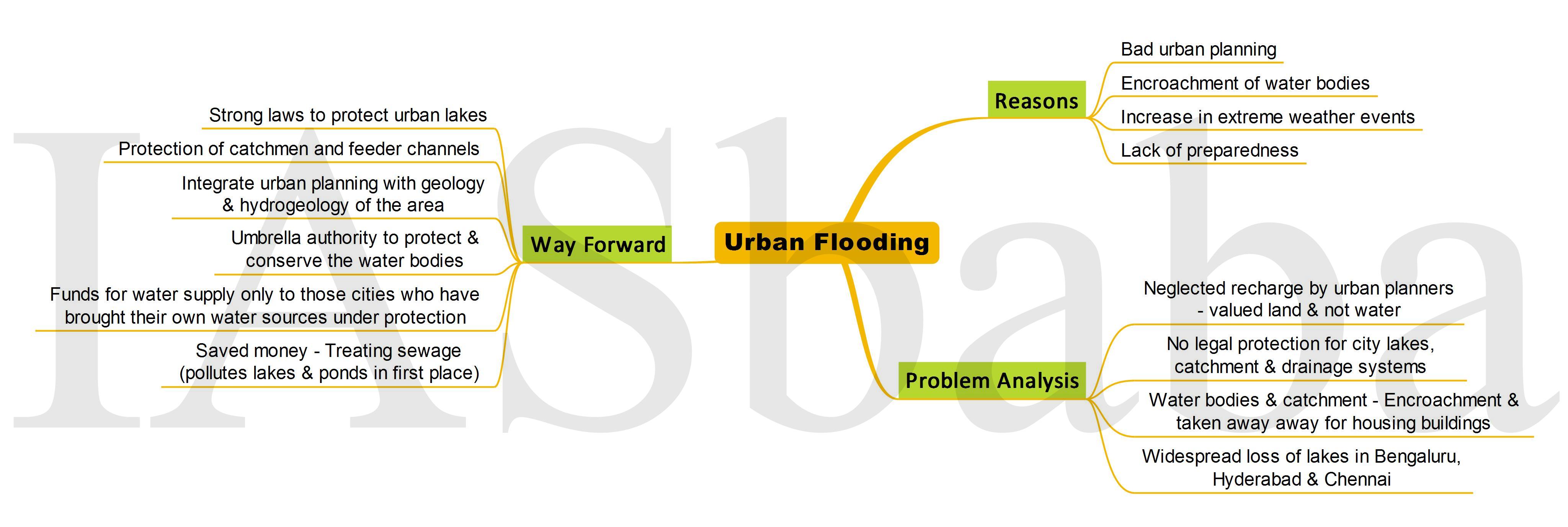IASbaba's Daily Current Affairs Analysis, IASbaba's Daily Current Affairs March 2016, National, UPSC
Archives
IASbaba’s Daily Current Affairs – 14th March, 2016
ECONOMICS
TOPIC:
General studies 2:
- Government policies and interventions for development in various sectors and issues arising out of their design and implementation
- Issues relating to development and management of Social Sector/Services relating to Health, Education, Human Resources
General studies 3:
- Awareness in the fields of IT, Space, Computers, Robotics, Nano-Technology, Bio-technology and issues relating to Intellectual Property Rights
Patents over Patients
Issue:
US industry groups recently claimed the Indian government offered them a “private” assurance that compulsory licences will not be issued, save in emergencies and for non-commercial purposes
Govt.: Yet to issue any sort of public declaration/clarification
Compulsory Licences—
Section 84-
A legal entitlement; Mandates that a compulsory licence be granted in favour of third parties, if the patented invention (such as a drug) is excessively priced or not available sufficiently
NatcoVs. Bayer
- Eg: Natco (Indian generic manufacturer) had applied for India’s first compulsory licence by convncing the patent office that Bayer’s patented drug for kidney cancer, SorafenibTosylate, was excessively priced and available to hardly 2 per cent of patients
- Natco offered to sell its version of the drug at Rs 8,800 per month against Bayer’s Rs 2.8 lakh per month
- Natco was thus, granted licence upon the payment of a 6 per cent royalty rate to Bayer, ensuring this was not a zero-sum game but one that could potentially benefit the patent owner as well
- Appeal by Bayer- Validation of the patent office decision and minor modifications in royalty rates were done
Section 92-
- A provision enabling the government to notify compulsory licences (of its own accord) on grounds of national emergency, extreme urgency or public non-commercial use
- Distinct from Section 84- Vests the government with more discretion
- Yet to issue any notification under Section 92
Obligation of the State:
- The ‘big’ data related to health needs to be removed from the shades of the influence of private parties (hospitals, pharmacies and drug companies) and be placed in the public forum (curing data deficiency) for further evaluation, monitoring the progress of the ongoing initiatives and for further research w.r.t. the public-policy dimension.
- If it’s Cancer: Need of a Central law mandating disclosure of data on patients, treatment methods, drug pricing, etc.
- Lack of Data- Government ended up denying the most recent compulsory licensing application under Section 84 to Lee Pharma, which bid for a licence against AstraZeneca’s Saxagliptin, a patented anti-diabetic drug
- Government needs to wed its seriousness with that of its own commitment to good health—
- must take steps to compel private parties to disclose drug and disease data
- must ensure quasi-judicial authorities (the patent office) remain relatively independent
- Adjudicate each application on merit and enact its role as a quasi-judicial authority
- Attract youth as experienced personnel vested with a fair degree of adjudicatory competence and independence and infused with sufficient training to ensure a fair, impartial and competent dispensation of justice
- Need to create market incentives for innovation, guaranteeing a return on sales for drugs
- Providing a safety cushion to the generic medicine producers from bearing the assaulting brunt of the multinational drug formulating companies (reduced prices and improved access for the majority of population)
Connecting the Dots:
- Are lives being viewed more as business opportunities? Present both sides of the argument with a proper conclusion.
NATIONAL
TOPIC: General studies 2
- Government policies and interventions for development in various sectors and issues arising out of their design and implementation.
- Indian Constitution- historical underpinnings, evolution, features, amendments, significant provisions and basic structure.
Freedom from a Colonial rule book
- Sections 377 and 124A of the Indian Penal Code highlight how the British left their stamp upon India’s criminal law in a manner entirely inconsistent with a democratic, constitutional republic.
A relic of our colonial past:
- Most major Indian laws are legacies of the British, the results of a great codification movement that failed to make much headway in the colonial metropolis, and therefore chose India as its laboratory.
- Apart from the Indian Penal Code or IPC (1860), there is the Indian Evidence Act (1872), the Indian Contract Act (1872), the Transfer of Property Act (1882), the General Clauses Act (1897), the Code of Civil Procedure (1908), the Code of Criminal Procedure (1898).
- Crime, contract, property, and legal procedure, the bastions of any legal system have come down to us, in 2016, largely preserved since the time of their inception.
Contemporary issue:
In recent times, two provisions of the IPC have been in the news.
- Section 377 was back in the headlines after two years, when the Supreme Court agreed to refer the curative petition against its earlier decision upholding its constitutional validity to a bench of five judges.
- Section 377, which imposed the completely alien term “carnal intercourse against the order of nature” upon the Indian public, is one of the clearest examples of the Victorian morality that pervades the IPC.
- The other provision is Section 124A, the offence of sedition.
- Created to deal with the rising Wahhabi movement in the 1870s, used against Gandhi, Tilak, Besant and many other stalwarts of the freedom movement, and in its latest avatar, invoked against sloganeering university students, the law of sedition is perhaps amongst the most recognisable and notorious provisions of the IPC.
Victorian morality, imperial logic:
- Section 377 embodies a form of colonial morality, drawn from Victorian England, famously repressed and repressive when it came to sex.
Other sections of IPC which are repressive when it comes to sex:
- It is the above colonial morality that is also the basis of Section 497 of the IPC, for instance, which punishes a man for adultery, but exempts the woman (who can be punished only as an “abettor”, and not as the primary offender).
- Section 498, which punishes “enticing” a married woman. It is a morality that views women as the passive partners in a sexual relationship, led astray by unscrupulous men, and unable to take responsibility for their own actions.
- Section 375, which places forced sexual intercourse between a husband and a wife outside the definition of “rape”, is based upon a belief that marriage entails a one-time, permanent and irrevocable consent to sex.
- Section 124A, on the other hand, reflects a colonial logic, predicated upon a subject-ruler relationship between the Indians and the British.
- Its prohibition upon spreading “disaffection” against the government, and the manner of its use, makes it clear that it was enacted to preserve the reputation of the colonial government in the eyes of its subjects.
Two other speech-based offences follow a similar logic.
- Section 295A, which was enacted in the aftermath of religious riots across north India in the 1920s, criminalises insulting the religious beliefs of any “class” of citizens.
- Section 153A criminalises promoting “enmity” between different groups.
These provisions reflect the British strategy of dividing the subcontinent into clearly identifiable “groups”, and managing the relationships between them.
Comprehensive relook needed:
- The problems with the IPC cannot be solved in a piecemeal manner by taking isolated sections of the code and attempting to modernise them (as the Verma Committee tried to do with the laws of sexual assault, in the aftermath of the Nirbhaya case).
- This is not a task that the judiciary can accomplish, with all the will in the world and with the best of intentions.
- It is for the legislature to take a comprehensive relook at the IPC for the first time in its 156-year history and introduce reforms that do not merely tinker at the edges but transform the very philosophy of the penal law in a manner that is consistent with our constitutional principles.
Adherence to constitution:
- Any reform w.r.t the colonial laws have to be carried out in conformity with the basic principles of the Constitution.
- Three of those principles are individual autonomy, the freedom of speech and conscience, and equality.
- In light of these principles, laws that claim to protect individuals from moral degradation and corruption (the package of obscenity laws) and that are based upon stereotypical assumptions about men and women, must be reviewed and modernised in a manner that is consistent with the Constitution.
Connecting the dots:
- Is colonial mentality hindering India’s development? Critically examine the statement wrt various colonial laws that have come under scrutiny in the recent past.
MUST READ
This Budget is not business as usual
Related Articles:
All you need to know about – ‘Budget 2016-2017’
Protecting the homebuyer
Related Articles:
Criminalise marital rape: UNDP chief
Transparency at any cost- Kakrapar Atomic Power Station
Swipe right for free trade- India must not sign up for TPP or, indeed, for RCEP, if it turns out to be stacked in favour of China as TPP is for the US
Related Articles:
Trans-Pacific Partnership (TPP) & India
India’s prospects with Myanmar- India needs a stable neighbour on the east to control, consolidate and cater better to the north-eastern region
Related Articles:
India Myanmar Relations: An analysis
Heading backwards- The cotton revolution is in danger of being reversed by government control over GM seed pricing
US sharpening its cyber-warfare tools – The control of cyberspace is likely to assume a new aspect, with the CEO of Google heading the US Defense Innovation Fund
MIND MAPS
1. Urban Flooding













